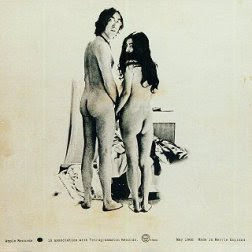
No one reads my blog for political commentary (or . . . no one reads my blog), but I can't let this pass. Still, I'll be brief: Apparently, Sarah Palin doesn't seem rabid enough for some conservatives anymore. Not enough foam at the mouth. And that's why conservatives have turned to Michelle Bachmann. Here's some information from a recent profile in the New Yorker magazine:
Bible: ". . . is the absolute infallible word of God." She believes in the inerrancy of the Bible which must be taken literally as history and science. She is a follower of fundamentalists who publish on this point. Bachmann points approvingly to a fundamentalist thinker who recently wrote that there may be "occasions when Christians are mistaken on some point while non-believers get it right." However, the foundation of non-believer thought is "false" so that "even individual truths will be seen through the distorting lens of a false world-view." This is from a book that Bachmann recently recommended.
Theocracy: She speaks highly of one fundamentalist writer, Francis Schaeffer, who believes that "Christians, and Christians alone, are Biblically mandated to occupy all secular institutions until Christ returns." Schaeffer argued for the violent overthrow of the the government if Roe v. Wade isn't overturned. Bachmann attended a Bible-based law school where a professor she admires called for a theocracy with Old Testament penalties for adultery and homosexuality: Death! Her mentor in law school has recently stated that the Confederacy, the last Bible-based government in his opinion, understood the Constitution better than Abraham Lincoln.
Slavery: She insists that the slave-owning, slavery protecting Founding Fathers worked incessantly to end slavery. Her law school mentor maintains that benevolence deterred Christian slave-owners from freeing their slaves. Another writer she recommends has written that "most southerners strove to treat their slaves with respect and provide them with a sufficiency of good for a comfortable, though -- by modern standards -- spare existence." This writer goes on to claim that Africans brought to America in slavery were lucky. "Africa, like any other pagan country (sic), was permeated by the cruelty and barbarism typical of unbelieving cultures." He also writes that "Slavery . . . was not an adversarial relationship founded upon racial animosity. In fact, it bred . . . mutual respect." And this happy relationship of slave and slaveowner was due, according to this writer, to Christianity.
Climate: "Global warming is a hoax."
Homosexuality: Being gay is a "personal enslavement" and with gay rights "little children will be forced to learn that homosexuality is normal and natural and perhaps they should try it." She follows a writer who has written pamphlets entitled: "The Homosexual Revolution: End Time Abomination" and "Communism, Hypnotism, and the Beatles" which, I'm happy to say, you can buy on Amazon!!!













































